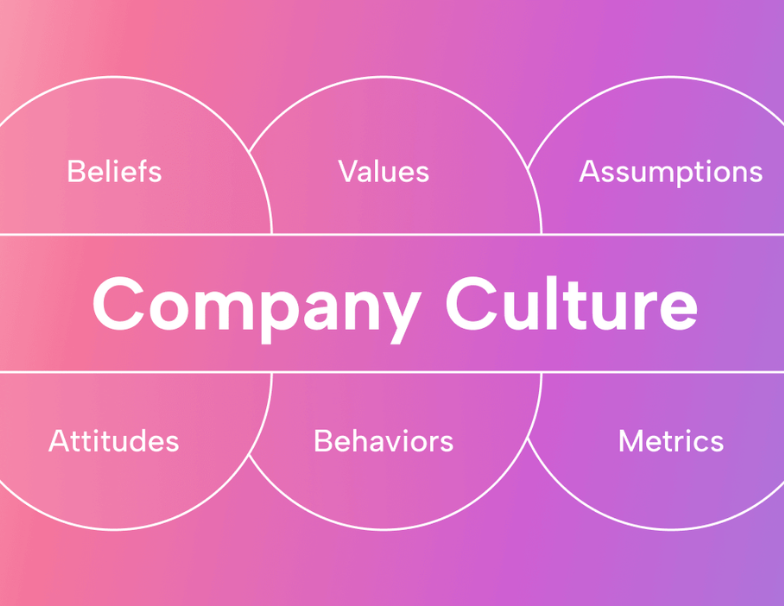How to Improve Corporate Culture: The Leader’s Guide to Lasting Change

What is corporate culture? Think of it as your company’s personality. It is the mix of shared values, beliefs, and behaviors that guide how people work together.
A strong culture makes employees feel engaged and valued. A negative one can lead to high turnover and low morale. But your culture isn't fixed. You can improve it.
This guide explores the steps for successful culture change.
Key Takeaways
- Expert-guided retreats, like those from Offsite, are powerful tools for building workplace culture by helping teams align and connect away from the office.
- Corporate culture is the set of shared values that guide how a company operates and how employees interact.
- Leadership and corporate culture are linked. A leader's actions, decisions, and communication define the real culture, not just the words on a wall.
- Signs that you need a culture change include high turnover, low employee engagement, and poor communication.
What is Corporate Culture?

At its core, corporate culture is the "way things are done around here." It influences everything. It affects how employees interact, how decisions are made, and how new ideas are treated.
You can see it in action across organizations. For example, some companies have a "culture of innovation." They encourage new ideas and are not afraid of failure. These are great corporate culture examples. Other companies might have a "culture of service," where the customer is the focus of every decision.
A strong culture aligns with the company's goals. A weak or toxic culture can hold a company back, even if it has a great strategy.
Signs You Need a Culture Change
Recognizing the need for change is the first step. Your culture might need an update if you see these signs:
- High Turnover: Are people leaving your company often? This is a major sign that the work environment is not supportive.
- Low Engagement: Do employees seem unhappy or disconnected? Surveys and focus groups can reveal if people feel unmotivated.
- Poor Communication: When information is withheld, it creates a culture of mistrust. This hurts productivity and morale.
- Company Growth: When a company grows quickly, its old culture can break. You may need to define your values for new team members.
The Link Between Leadership and Corporate Culture
Leaders are the architects of corporate culture. Their actions send powerful signals to employees about what is truly valued.
If a leader says they value "work-life balance" but sends emails at 10 p.m., the real culture is one of overwork. This is why leadership and culture cannot be separated.
Effective leaders shape culture in two main ways:
- Transformational Leadership - This style inspires and motivates teams. These leaders encourage growth and innovation. They create a positive environment where employees feel empowered.
- Transactional Leadership - This style uses a clear system of rewards and punishments. It is focused on rules and short-term goals. While it can be effective, it often does not build deep trust or loyalty.
To build a great culture, leaders must model the behaviors they want to see. This builds trust and shows integrity.
How to Improve Corporate Culture: A Step-by-Step Guide
You can't change a culture overnight. It takes a clear plan and commitment. Here are the practical steps for building culture that lasts.
Step 1: Assess Your Current Culture
Before you can change, you must understand where you are. Use tools to get honest feedback:
- Employee Surveys - Ask direct questions about values, communication, and leadership.
- Focus Groups - Talk to small groups of employees. Ask what they would like to see change.
- Interviews - Have one-on-one conversations to understand specific issues.
Step 2: Define Your Vision and Values
Once you know the problems, set a vision for the future. What do you want your culture to be?
Your values must be clear and simple. For example, instead of a vague value like "Excellence," try a value like "Be 1% Better Every Day." This is an actionable value that people can follow.
Step 3: Empower Employees in the Change
Culture change fails when it is forced from the top down. You must involve your employees.
- Ask for Input - Involve employees in creating the new values.
- Give Autonomy - Allow people the freedom to make decisions. This builds a sense of ownership.
- Recognize Good Work - When you see someone living the new values, praise them. This reinforces the change.
Step 4: Overcome Resistance
Change is hard. People will naturally resist. As a leader, your job is to be a clear and constant communicator.
- Explain "Why" - Tell people why the change is happening and how it benefits them.
- View Failure as Learning - Culture change is a significant experiment. If you punish mistakes, people will stop trying. Frame failures as learning opportunities.
- Be Patient - Phasing in changes slowly can help people adapt.
Building Corporate Culture with Expert Help

Sometimes, the best way to spark a culture change is to step away from the office. Daily routines can make it hard to see the bigger picture.
This is where expert help can be transformative. Services from companies like Offsite specialize in this. Offsite plans and facilitates company retreats. These are not just fun trips. They are guided experiences designed to:
- Build Authentic Connections - Teams bond in a new environment.
- Align on Values - A facilitator can lead workshops to help your team define and commit to your new vision.
- Spark Lasting Change - An offsite gives your team a shared, memorable experience. It creates the momentum you need to bring new energy back to the office.
By using a dedicated offsite, you give your team the space to reflect and grow together. This is a powerful step in building the kind of culture you aspire.
Offsite Experiences for Cultural Transformation

Offsite experiences can play a transformative role in shaping organizational culture. Immersive simulations provide realistic scenarios that enhance the application of soft skills in workplace interactions. These curated off-site experiences are designed to strengthen alignment, foster authentic connections, and drive cultural transformation.
By engaging large groups of employees simultaneously, off-site experiences promote alignment and cultural change. These experiences reinforce corporate culture by creating an environment where employees feel connected and aligned with organizational values. Such initiatives not only enhance team cohesion but also drive a deeper understanding and commitment to the organization’s mission and values.
Summary
Corporate culture is more than just a buzzword. It is the heart of your organization. It defines your employee experience and drives your success.
While leadership is critical, true culture change is a team effort. By assessing your values, setting a clear vision, and empowering your team, you can build a positive, lasting culture. And when you need to align your team, using a service like Offsite can provide the perfect spark for your transformation.
FAQs
- What is corporate culture in simple terms?
It is your company's personality. It's the shared values and behaviors that decide "how things get done here." It includes everything from the leadership style to how people communicate.
- What are some corporate culture examples?
A good example is a "culture of innovation," where new ideas and risks are encouraged. Another is a "culture of transparency," where leadership openly shares information about the company's performance.
- How does leadership affect business culture?
They are deeply linked. Leaders' actions set the culture. If leaders are open and supportive, the culture will be, too. If leaders are secretive, the culture will lack trust.
- What is the best way to start a culture change?
The best way to start is by listening. First, assess your current culture with surveys or interviews to find out what is not working. You cannot plan your future until you understand your present.
You may also like
Unique spaces for your next offsite
Find distinctive venues for your upcoming corporate retreat.
Stay Updated with Our Insights
Get exclusive content and valuable updates directly to you.







